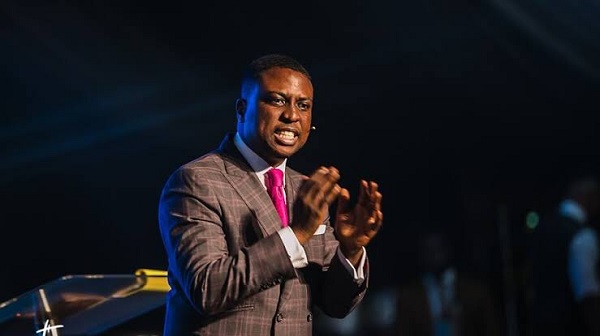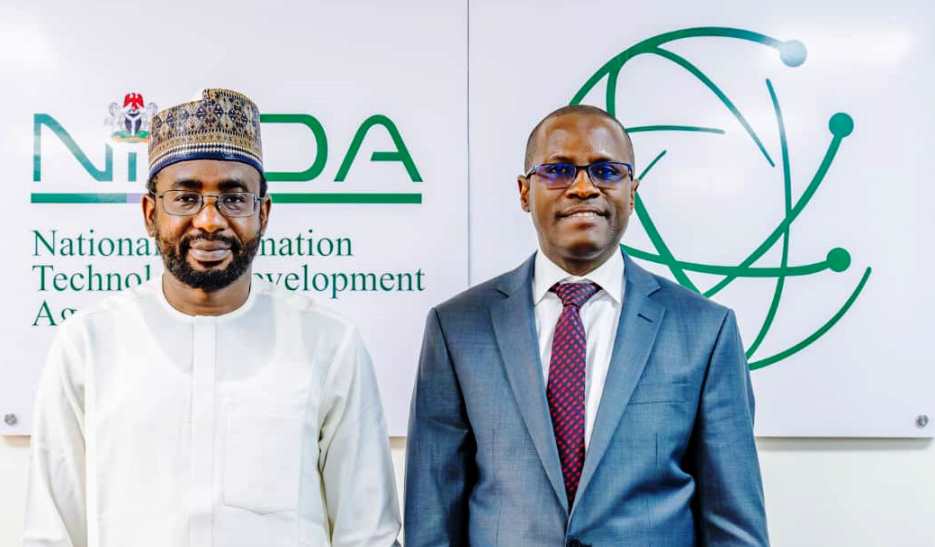The dynamics of romantic relationships are often topics of heated discussion and passionate debate in both Nigerian and wider African communities. Recently, a statement made by Bolaji Idowu, pastor at Harvesters International Christian Centre, during a Lagos service has brought new attention to the roles women play in their relationships—a topic with both local resonance and global relevance.
In his message, Pastor Idowu advised women to reconsider adopting what he described as the role of “builders” in their partnerships. According to Idowu, while emotional support is a natural and valued part of a healthy relationship, problems arise when women feel obligated to solve or take full responsibility for their partners’ challenges, especially on personal and financial fronts. His comments have since sparked lively conversations, attracting praise, criticism, and calls for a deeper examination of gender expectations in modern African relationships.
Understanding the “Builder” Syndrome
Pastor Idowu’s statements reportedly stem from observing couples in his congregation who find themselves struggling with issues of responsibility and agency. He claims that some women, motivated by concern or love, go to lengths such as repairing their partners’ vehicles, covering their rent, or stepping in whenever a crisis arises. While these gestures are often made with good intentions, experts argue they may unintentionally alter power dynamics, introducing strain instead of harmony.
In his words: “You are not called to build your man; you are called to support your man. Some of you have turned into Bob the Builder. ‘My car is bad,’ and you say, ‘I will fix it.’ ‘I can’t pay rent,’ and you respond, ‘I’ll pay for you.’ You are meant to support, not to be the builder.”
Traditional Expectations vs. Modern Realities
Nigerian and West African societies have witnessed shifting expectations around gender roles, especially among younger generations and the urban middle class. While communal support and mutual care are deeply embedded in African cultural traditions, the fine line between empowering a partner and becoming their sole problem-solver is increasingly coming under scrutiny.
According to sociologist Dr. Ifeoma Okoye of the University of Lagos, “It is important to examine how women’s increased economic power influences relationship dynamics. In some cases, women feel pressure to ‘fix’ every problem as a demonstration of love, but this can also lead to imbalance, burnout, or resentment if not managed carefully.” She notes that similar conversations are happening in Ghana, Côte d’Ivoire, South Africa, and in the African diaspora, evidencing a continental trend in reexamining cultural scripts around love and partnership.
Emotional Burden and Relationship Health
Numerous studies point to the potential downsides of a partnership where one person consistently takes on the role of “rescuer” or “builder.” A 2021 report by the African Psychological Association found that couples with imbalanced emotional and financial support structures reported lower satisfaction and higher conflict rates. “Taking on too much leads to frustration, especially when support turns into control,” noted relationship therapist Mrs. Tolu Erogbogbo during a recent interview on Lagos radio.
Pastor Idowu’s message echoes this perspective. He cautioned that, over time, the partner playing the “builder” role may begin to feel like a parent rather than an equal—a situation which he believes undermines the romantic spirit of the union. He argues that genuine support should uplift and encourage, but not replace a partner’s responsibility for their own growth and stability.
Local Reactions and Gendered Perspectives
The pastor’s position has prompted diverse reactions both within Nigeria and beyond. Some women, like Abuja-based entrepreneur Blessing Okon, see merit in his point, noting, “Sometimes we take on more than we should out of fear of not being appreciated. But it’s important for our partners to step up, too.”
However, others argue that there are times when stepping in is necessary and that support should be a two-way street. “I understand what the pastor is saying, but in reality, there are situations where a family simply needs to survive and whoever can help, should,” said Edem Mensah, a Ghanaian lecturer in Accra.
Men’s perspectives are also varied. Some report feeling emasculated or dependent if their partner handles their responsibilities, while others appreciate the willingness of their partners to share burdens, especially in a challenging economy.
Context in Nigerian and West African Society
Many experts point out that Pastor Idowu’s message should be understood within the context of current social and economic realities. Unemployment, underemployment, and inflation continue to challenge households across Nigeria and West Africa, often requiring both partners to contribute significantly—financially and emotionally—to a household’s survival.
Historically, the concept of shared burdens and collective survival has underpinned family structures in the region. However, rising debates reflect increased consciousness about mental health, gender balance, and mutual respect. Groups like the Nigerian Feminist Forum have underscored the need for dialogue that respects both traditional values and modern aspirations, encouraging relationships built on partnership rather than dependency.
Finding the Balance: Support Versus Rescue
Relationship counselors emphasize that the best outcomes arise when couples communicate openly about expectations and boundaries. “There’s a difference between helping your partner through a tough time and carrying their entire load indefinitely,” explains family life coach Mrs. Rose Ewurum. She recommends that couples regularly evaluate their partnership, ensuring that support feels empowering rather than obligatory or burdensome.
Some practical suggestions experts offer Nigerian and West African couples include:
- Discussing individual and shared responsibilities at the start and throughout the relationship
- Setting healthy boundaries for financial and emotional support
- Encouraging self-reliance and growth for both partners
- Seeking professional counseling or community advice when facing persistent challenges
Global Relevance and Lessons
The questions Pastor Idowu raises are mirrored worldwide, as societies reckon with evolving gender roles and increased emphasis on equality. Media in the UK, US, and African diasporic communities have grappled with similar themes, highlighting universal lessons about trust, partnership, and respect within relationships.
Ultimately, the debate speaks to the desire for relationships built on mutual support and healthy boundaries—at home in Africa and globally. As West African economies continue to shift and social norms adapt, the conversation around how partners can love and empower each other without sacrificing themselves is unlikely to fade away soon.
What do you think: Have traditional expectations around women’s roles in relationships changed in your community? Are “support” and “building” always mutually exclusive—or can they coexist? Share your experiences in the comments below, and follow us for more insightful coverage on relationships, lifestyle, and cultural trends.
For general support, reach out at support@nowahalazone.com.
Join the conversation—follow us on Facebook, X (Twitter), and Instagram for more updates, and drop your thoughts in the comments!










